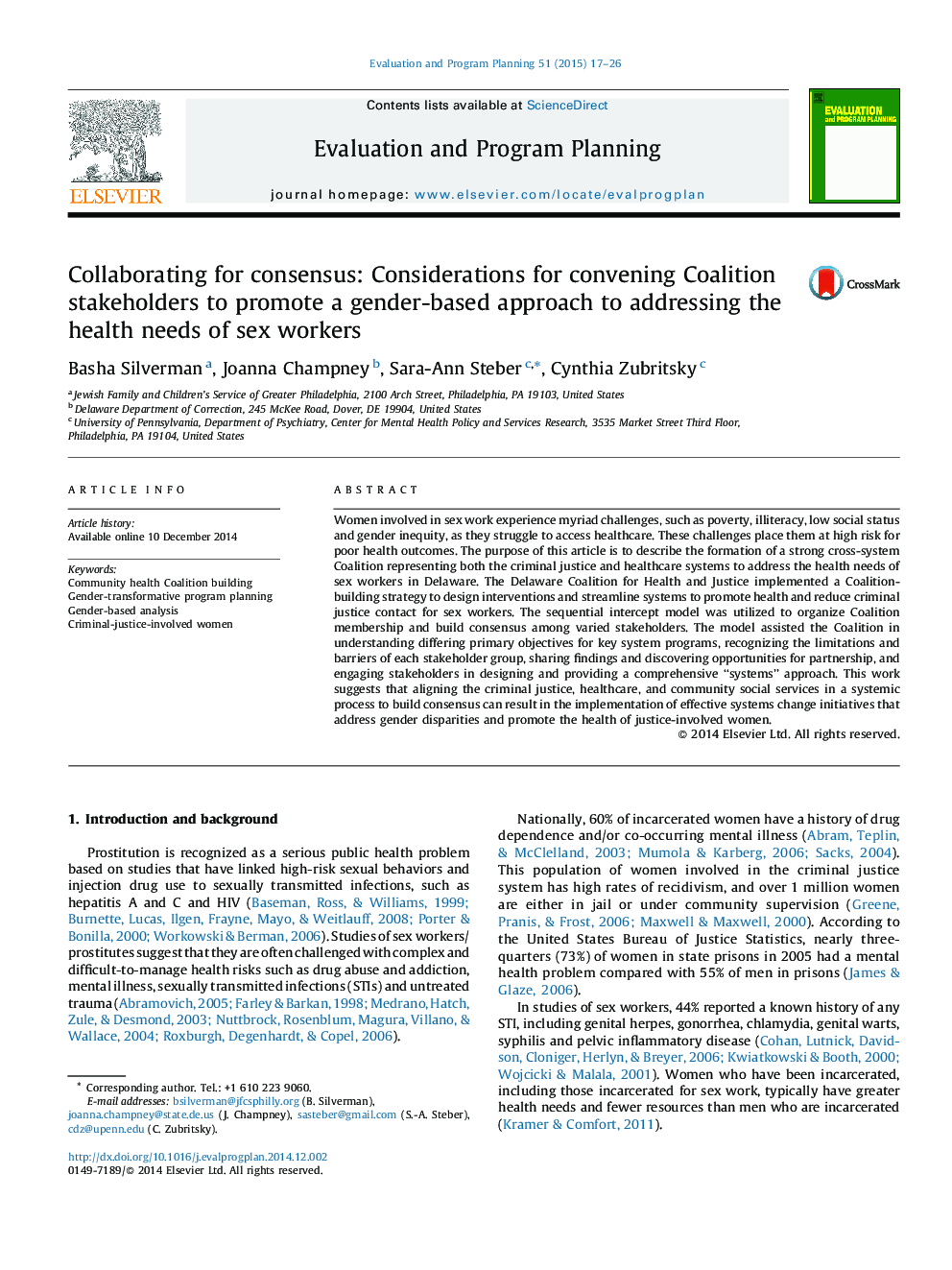| Article ID | Journal | Published Year | Pages | File Type |
|---|---|---|---|---|
| 322452 | Evaluation and Program Planning | 2015 | 10 Pages |
•A gender-based analysis has enhanced community Coalition development.•Public health system approach has resulted in cross-system collaboration.•The sequential intercept model (SIM) has resulted in a shared vision among Coalition members.•A gender-transformative approach has increased community participation.•Consistent Coalition membership and participation are vital to success.
Women involved in sex work experience myriad challenges, such as poverty, illiteracy, low social status and gender inequity, as they struggle to access healthcare. These challenges place them at high risk for poor health outcomes. The purpose of this article is to describe the formation of a strong cross-system Coalition representing both the criminal justice and healthcare systems to address the health needs of sex workers in Delaware. The Delaware Coalition for Health and Justice implemented a Coalition-building strategy to design interventions and streamline systems to promote health and reduce criminal justice contact for sex workers. The sequential intercept model was utilized to organize Coalition membership and build consensus among varied stakeholders. The model assisted the Coalition in understanding differing primary objectives for key system programs, recognizing the limitations and barriers of each stakeholder group, sharing findings and discovering opportunities for partnership, and engaging stakeholders in designing and providing a comprehensive “systems” approach. This work suggests that aligning the criminal justice, healthcare, and community social services in a systemic process to build consensus can result in the implementation of effective systems change initiatives that address gender disparities and promote the health of justice-involved women.
